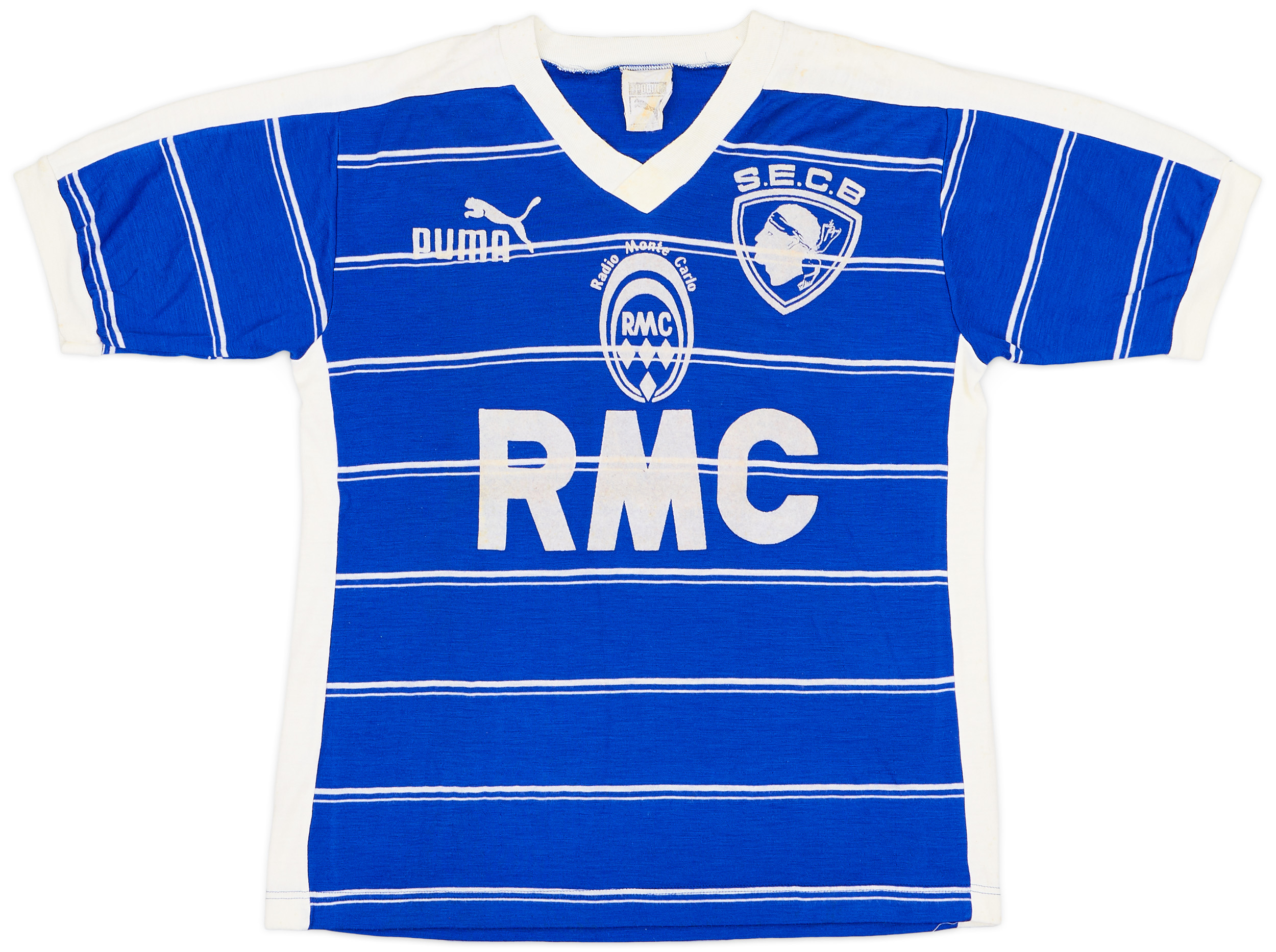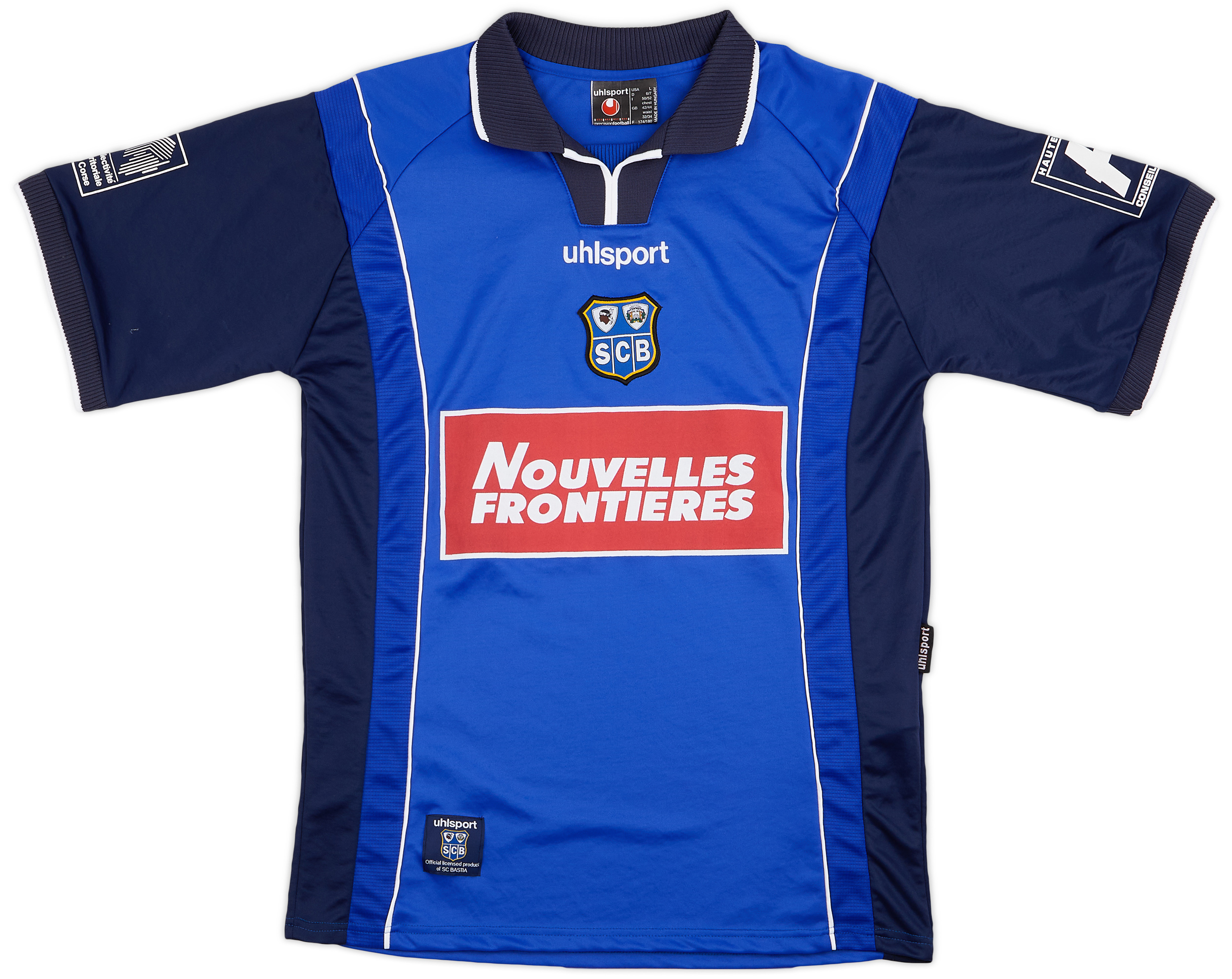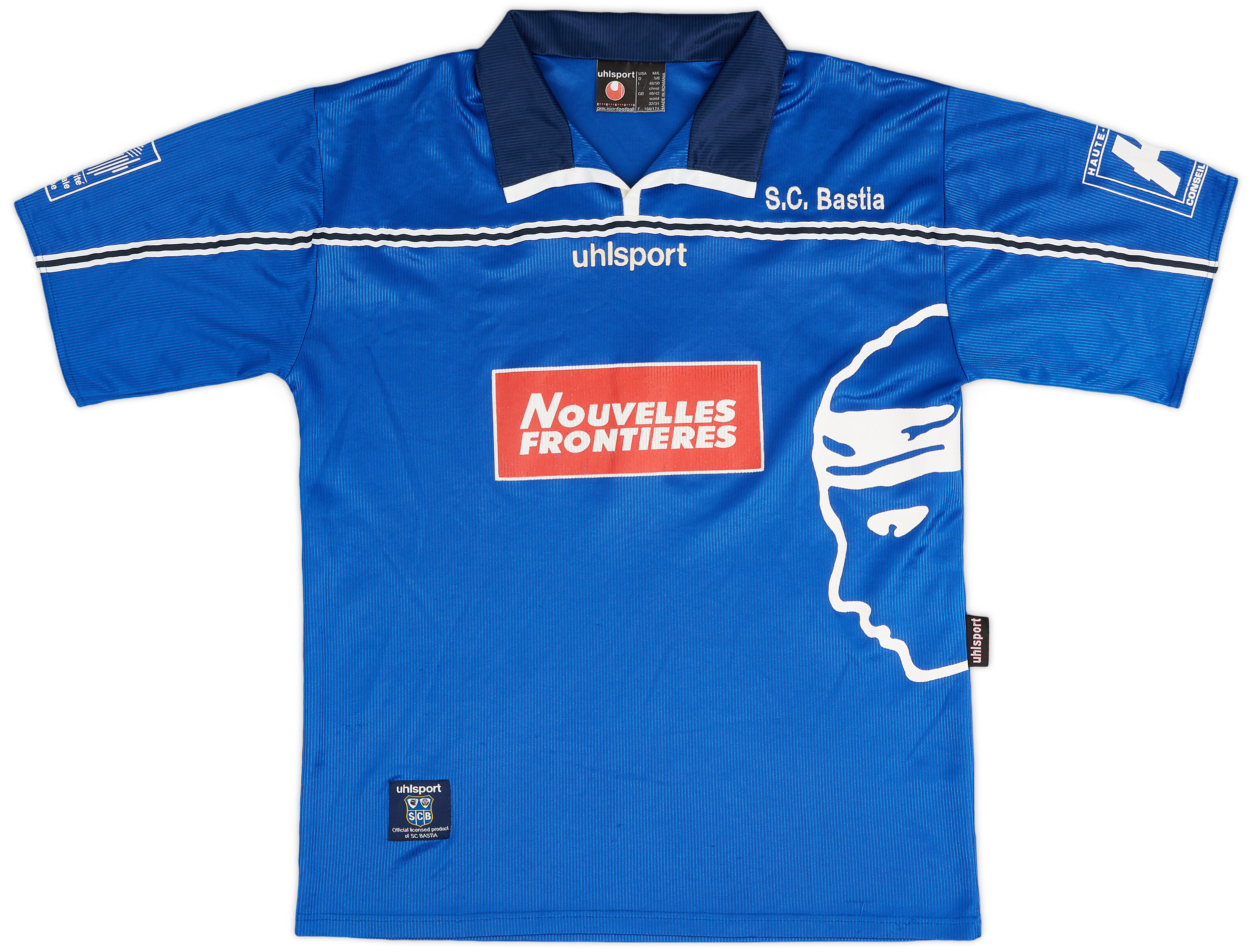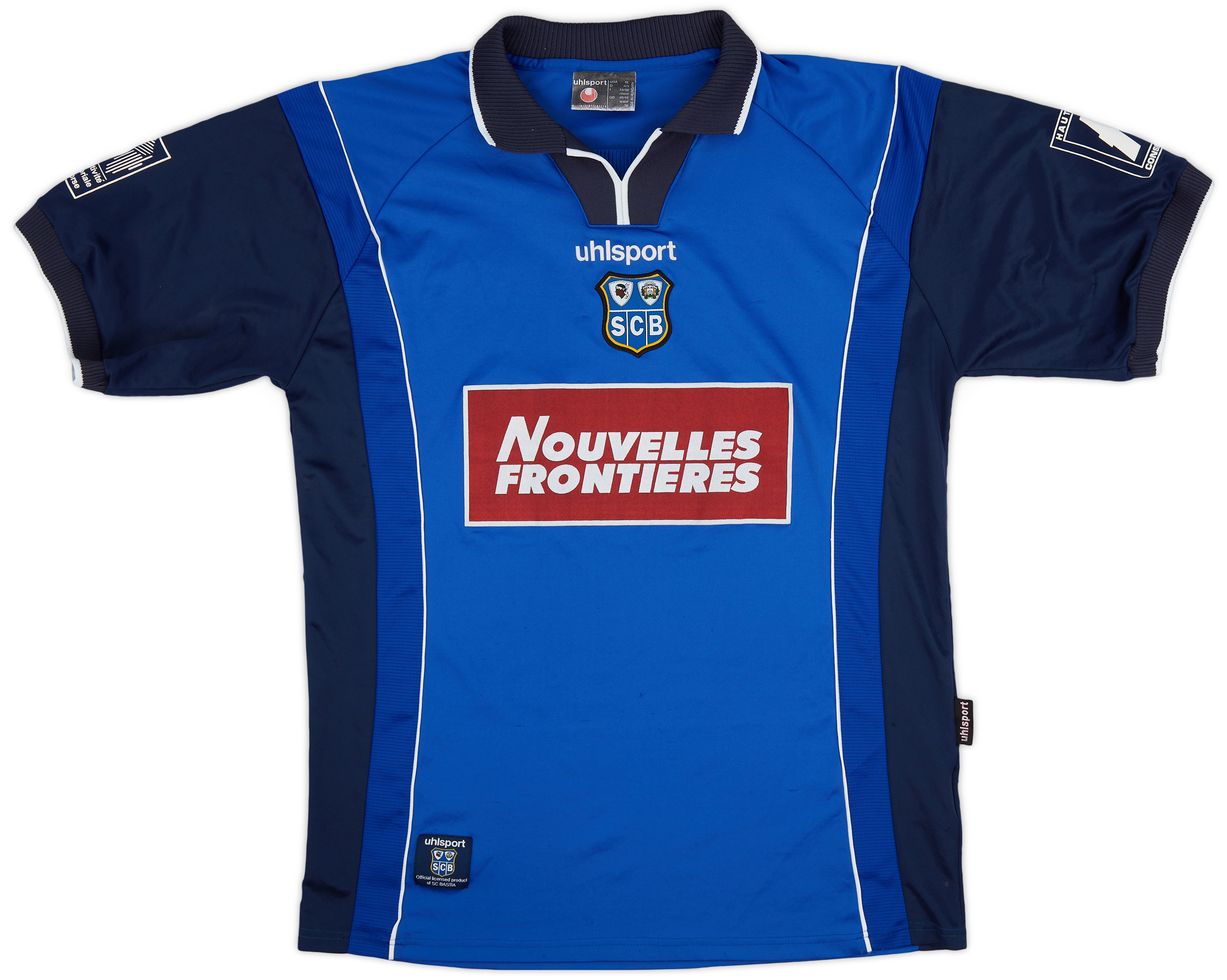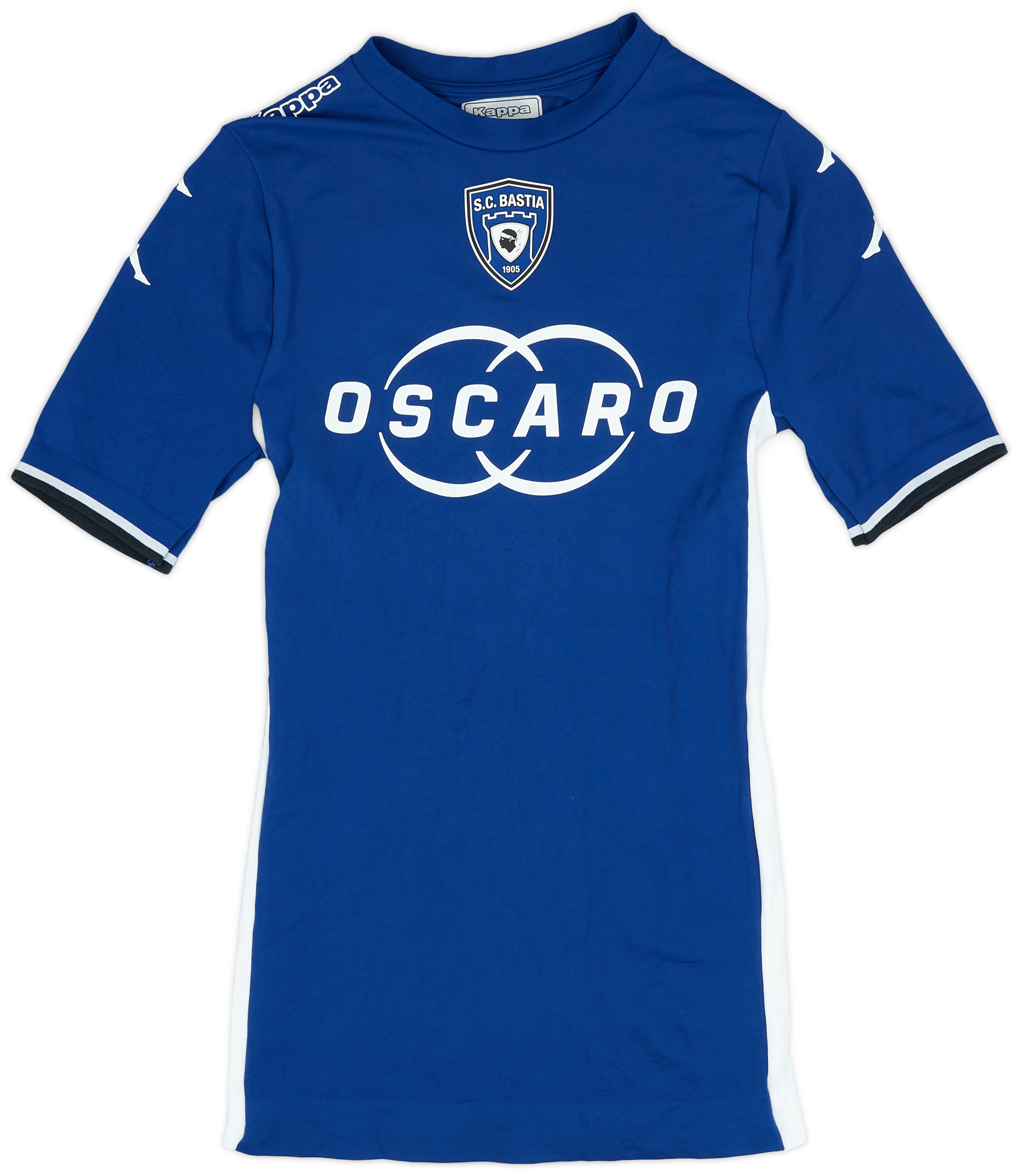SC Bastia
Introduction Sporting Club Bastia, commonly referred to as SC Bastia, embodies the rich football culture of Corsica, France. Established in 1905, this club has become a cornerstone of local identity, representing not only a sporting entity but also a piece of Corsican heritage. With its passionate fanbase and its iconic blue-and-white colors, SC Bastia stands […]
1982-83 SC Bastia Home Shirt - 8/10 - (M)
356.99£ - ca: €421
2000-01 SC Bastia Home Shirt - 8/10 - (L)
94.99£ - ca: €112
2001-02 SC Bastia Home Shirt - 7/10 - (M/L)
82.99£ - ca: €98
2000-01 SC Bastia Home Shirt - 8/10 - (M)
82.99£ - ca: €98
2002-03 SC Bastia Home Shirt - 9/10 - (M/L)
82.99£ - ca: €98
2017-19 SC Bastia Authentic Home Shirt - 9/10 - (L/XL)
70.99£ - ca: €84
2002-03 SC Bastia Home Shirt - 8/10 - (M/L)
58.99£ - ca: €70
Introduction
Sporting Club Bastia, commonly referred to as SC Bastia, embodies the rich football culture of Corsica, France. Established in 1905, this club has become a cornerstone of local identity, representing not only a sporting entity but also a piece of Corsican heritage. With its passionate fanbase and its iconic blue-and-white colors, SC Bastia stands as a testament to the profound connection between football and community spirit. The club has had its ups and downs, yet its resilience and dedication to the game have helped it carve a unique niche in French football history.
Club History
SC Bastia was founded by a group of enthusiasts in 1905, with its initial focus on amateur football. The club had modest beginnings, participating in local and regional competitions. By the 1930s, SC Bastia began to make a name for itself, reaching the national stage. The club’s major breakthrough came in 1968 when it secured promotion to French football’s top tier, known as Ligue 1. This marked a turning point in the club’s trajectory and set the stage for its future successes.
Throughout the 1970s and 1980s, SC Bastia became a prominent player in French football, consistently competing at high levels. Notably, the club reached the 1978 UEFA Cup Final, a significant milestone that showcased SC Bastia on the European stage, although they lost to the Dutch side, PSV Eindhoven, in a tightly contested matchup.
Achievements
SC Bastia has a history defined by both domestic and international accomplishments. The club won its first major trophy in 1981, clinching the Coupe de France, the prestigious French cup competition, with a 2-1 victory over AS Saint-Étienne. This triumph spotlighted the club in French football and established SC Bastia as a legitimate force.
In total, SC Bastia has had a successful domestic campaign, winning the Coupe de France three times (in 1972, 1981, and 1984) and finishing as runners-up on another occasion. In terms of league performance, the club has enjoyed stints of success in Ligue 1, consistently appearing among the top contenders during the 1970s and 1980s. Their highest league finish was third in the 1976-1977 season. Internationally, in addition to their UEFA Cup Final appearance, SC Bastia has competed in various European tournaments, building a reputation as a formidable adversary.
Significant Players and Matches
Over the years, SC Bastia has been home to numerous legendary players who have left an indelible mark on the club’s history. Notable figures include the likes of Roger Bicou, a dynamic midfielder who played a pivotal role in the club’s notable successes in the 1970s. Another significant player is the prolific forward, Pierre Yves Andre, who became synonymous with the club in the 1990s, scoring crucial goals and contributing to key victories.
Memorable matches are etched in the annals of SC Bastia’s history. One such match was the 1972 Coupe de France final against AS Saint-Étienne, where SC Bastia triumphed in a shocking upset, solidifying their reputation as cup fighters. The 1984 Coupe de France victory, where Bastia defeated Nantes, is also remembered fondly by the fans, marking the apex of their golden era.
Cultural Impact
Beyond the pitch, SC Bastia holds a significant place in Corsican culture and identity. The club’s field is situated in the heart of Bastia, making it a focal point for the community. The passionate supporters, known as “les Turchini,” create an electric atmosphere during home games at the Stade Armand-Cesari, contributing to the unique footballing culture of the region.
The ties between SC Bastia and its fanbase run deep; emotional loyalty transcends mere sport, often intertwining with local pride and identity. The club’s motto, “L’âme d’une île” (The soul of an island), reflects this profound connection. As a team representing Corsica, SC Bastia has fostered a sense of unity and pride among the islanders and has been a platform for promoting Corsican identity both locally and beyond.
Conclusion
SC Bastia’s journey through the annals of football history is one filled with pride, resilience, and passion. From humble beginnings to notable successes in domestic and international arenas, the club has weathered challenges while remaining a bastion of Corsican heritage. The remarkable contributions of legendary players and the unwavering support of its fans forge an unbreakable bond between the club and the community it represents. As SC Bastia continues to navigate the evolving landscape of football, its legacy as a symbol of local pride and sporting excellence will undoubtedly endure for generations to come.
